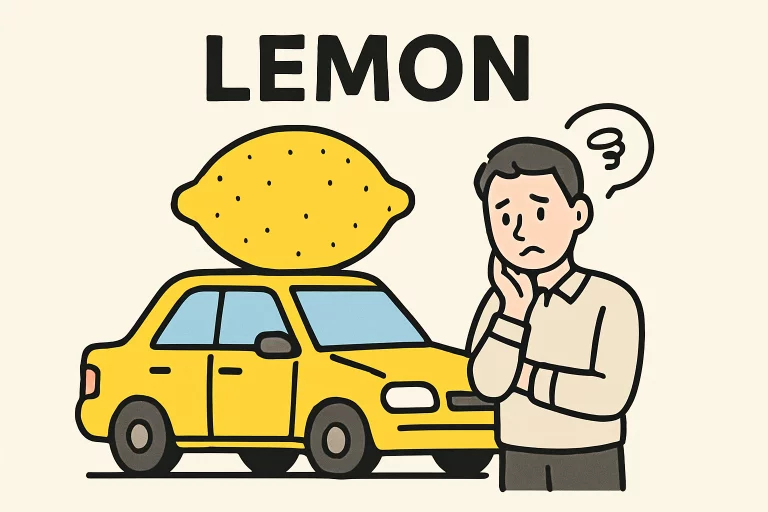Lemon laws are vital for consumers who purchase vehicles only to discover persistent, unfixable defects that compromise the car’s function, safety, or value. These laws aim to protect buyers from shouldering the burden of owning an unreliable or unsafe automobile. Whether buying your first new car or navigating a frustrating situation with a problematic purchase, knowing your rights under lemon laws can make a critical difference in your experience—and in your wallet. Working with a knowledgeable Maine lemon law attorney can make the entire process more manageable, helping you avoid the many pitfalls that can cost you time, money, and peace of mind. This article dives into the most pressing and common questions about lemon law protection, giving you comprehensive clarity and practical guidance based on the latest rules and regulations available.
It’s essential to recognize that lemon law provisions and protections are highly state-specific. Each state sets its rules on what qualifies as a “lemon,” which vehicles are eligible, and the procedures for pursuing compensation or a buyback. That means the advice you receive or the remedies available can vary widely depending on your location.
What Qualifies a Vehicle as a Lemon?
A vehicle is commonly categorized as a lemon when it displays a serious defect or malfunction that impacts its overall use, market value, or most importantly—its safety. This definition goes beyond everyday annoyances; it encompasses persistent problems that make the car unreliable or dangerous and cannot be resolved despite numerous reasonable repair attempts. What counts as “reasonable” is determined by each state’s law. For instance, in California, a car might be considered a lemon if it has undergone four or more unsuccessful repair attempts for the same issue, or if it has been out of service due to warranty repairs for 30 or more days within the first 18 months or 18,000 miles, whichever comes first. Other states may have similar or more stringent requirements. Knowing the specific criteria in your state is crucial—be proactive and check your local standards or consult an expert to be sure.
Do Lemon Laws Cover Used Vehicles?
Lemon law protection for used vehicles varies dramatically across the United States. In some states, such as California, the law provides significant coverage for used vehicles, but only under specific circumstances, such as those still under the manufacturer’s original warranty or sold with a certified pre-owned (CPO) warranty. The legal protections typically do not extend to used cars sold “as is” or without ongoing warranty coverage. This makes it especially important that buyers fully understand the terms of their vehicle purchase and any warranties that may come with it. If you are unsure whether your used car qualifies for lemon law protection, reviewing the exact language of your warranty or consulting an attorney specializing in lemon law cases can give you clarity.
What Types of Defects Are Covered?
Lemon laws are designed to protect consumers from major defects that threaten the vehicle’s safety, reliability, or value. Typical qualifying problems might include catastrophic engine failures, malfunctioning brake systems, or chronic electrical and mechanical failures that prevent proper car use. Safety issues—such as airbag or seatbelt malfunctions, power steering failures, or problems affecting brakes—are especially likely to be covered since they endanger the driver, passengers, and others on the road. On the other hand, lemon laws generally do not cover minor defects such as non-essential cosmetic issues, small rattles, or inconveniences that don’t meaningfully affect the operation or safety of the car. It’s vital to differentiate between these two categories when considering pursuing a lemon law claim.

What Remedies Are Available Under Lemon Laws?
If you prove your vehicle is a lemon under state law, you may be entitled to several powerful remedies intended to make you whole. The most common outcomes are a comparable replacement vehicle, a full refund that generally includes the sales price, applicable taxes, registration fees, and often additional qualifying out-of-pocket expenses like towing charges or the cost of alternative transportation. Some states also allow for reimbursement of the repair costs consumers have incurred while trying to fix the defect. For instance, if the manufacturer fails to fix the vehicle after a reasonable number of attempts, you could receive a complete buyback or a defect-free replacement car. These remedies are designed to restore your original financial position as much as possible, preventing you from being stuck with the financial repercussions of a defective vehicle.
How Do I File a Lemon Law Claim?
Step 1: Collect Comprehensive Documentation
Begin by keeping meticulous records related to your vehicle’s persistent defect. This means documenting every repair visit, the nature of the complaints, actions taken by the repair facility, and any communications with the dealer or manufacturer. These records serve as vital evidence if you must present your case in arbitration or court.
Step 2: Notify the Manufacturer in Writing
Most states require you to formally notify the manufacturer about the ongoing defect and explicitly request a solution. This letter should detail the defect, summarize repair efforts, and demand an appropriate resolution using lemon law procedures. Giving the manufacturer a fair opportunity to fix the problem is usually a prerequisite before you can escalate your claim.
Step 3: Consider Legal Assistance
Consulting with a lemon law attorney can be invaluable at this stage. Legal experts who specialize in this field understand the technicalities and can help ensure you avoid procedural missteps that could risk your claim. They can organize your evidence, advise on the strength of your case, and negotiate directly with the manufacturer.
Step 4: Officially File Your Claim
If direct negotiations fail, the next step is to file an official claim. This may mean going through the manufacturer’s dispute resolution process, state arbitration, or sometimes filing a lawsuit. Having an experienced attorney represent you can maximize your chances of success, ensure all deadlines are met, and provide an advantage in negotiations or court.
Are There Time Limits for Filing a Lemon Law Claim?
Yes, strict statutes of limitations govern when you can file a lemon law claim, and missing them can forfeit all rights to compensation or other remedies. In California, for example, the statute of limitations is generally four years from when you become aware that your car may be a lemon. However, evolving state regulations and new legislative updates sometimes create more urgent timelines, so it is critical to check the latest rules or consult an expert when you suspect you have a claim. Proactive action is essential to protect your interests and avoid missing your window for legal recourse.
Do I Need an Attorney to File a Lemon Law Claim?
While consumers are legally empowered to file lemon law claims themselves, the procedural requirements, legal jargon, and negotiation tactics can be overwhelming without expert help. Engaging a reputable attorney—such as a practiced lemon law attorney—can make an enormous difference. Lawyers specializing in lemon law can organize your case, handle all communications with manufacturers, ensure adherence to strict deadlines, and greatly increase your odds of a favorable resolution. In many cases, the manufacturer may even pay legal fees if you win your case, meaning expert representation can be accessible to everyone.
If you’re struggling with a problematic car that can’t seem to be fixed, don’t wait—reach out for guidance from a seasoned legal professional, such as a specialized lemon law attorney, to ensure you’re protected at every step in the process.

